tough business:
a parker site
“We don’t compromise Parker’s code” - An Exclusive Interview with Shane Black
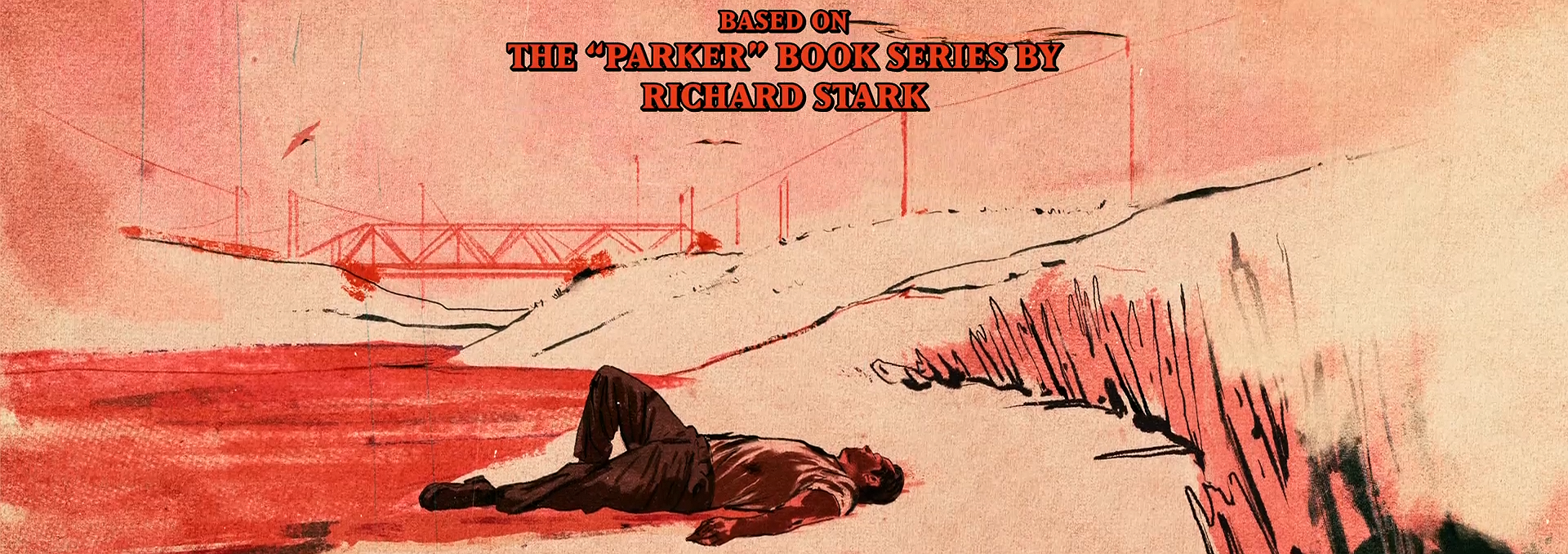
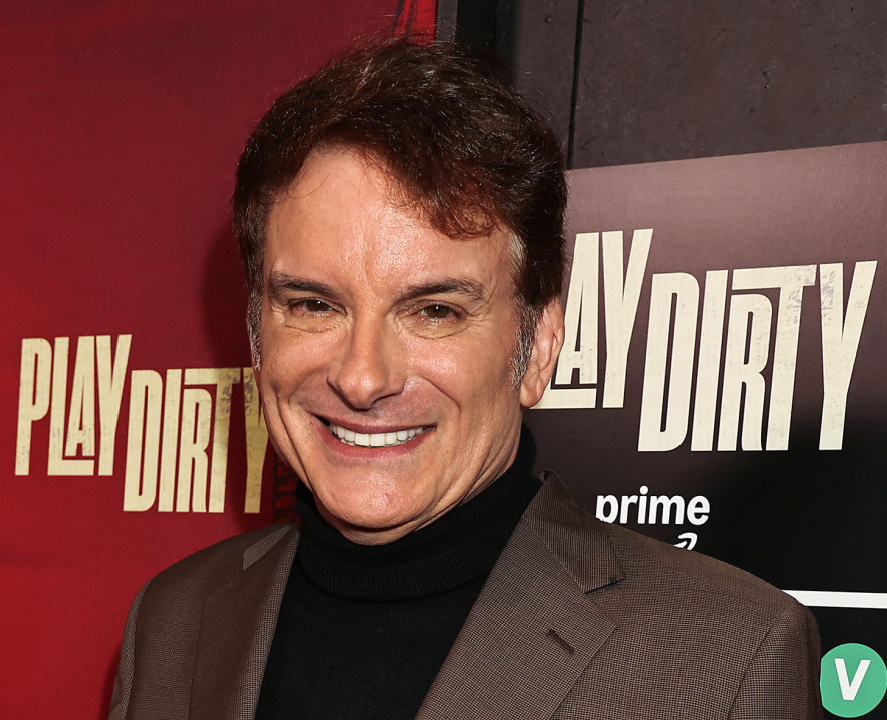
A week after the highly-anticipated release of Play Dirty, Tough Business had the pleasure of sitting down for a chat on all things Parker with acclaimed director Shane Black. Best known for neo-noir hits like Kiss Kiss Bang Bang and The Nice Guys, Shane spoke about his new film, his thoughts on Parker and Grofield's dynamic, and a glimpse behind-the-scenes of this latest Richard Stark adaptation.
TB: You’ve talked about discovering Parker at a young age, but what drew you to the books? Do they still hold the same appeal years later?
SB: That’s a good question. I have encountered Parker at various points in my life, and also not just him but the Dortmunder books as well – and the standalones. Westlake tended to be a writer of comic caper novels. My first introduction was The Hot Rock, and then I moved on to Parker. Like I said, I went through the years with him, and the novels don’t lose anything at all. They have this sort of readability about them, and the fact that they’re each sort of little gems; they’re not huge novels, even Butcher’s Moon slides past.
The prose holds up, the attitude holds up. These evolved over the years – the first one was written when there were rotary telephones and the last was written when there were handheld Samsungs – so along the way, he managed to proceed with this character without compromising even an iota of the punch and the style and the grace of the books. I refer to Westlake as the mystery writers’ mystery writer. It seems to me that if you would ask any of the ones in the business who sold more books than him, they’d say, “yeah, well, he’s still the guy that takes you to school, he’s still the guy that I go back to when I want the real stuff.”
TB: We feel the same way about Mr. Westlake’s work. It has this enduring quality.
SB: Yeah. He endures, and my hope is that, y’know, it’ll have people go on right to Amazon after they’ve watched the film, and order some of the books. I hope that happens.
TB: I think it will, I think a lot of people will see the appeal of Parker from the movie.
SB: Hopefully! It's a little bit of a different movie. Previous Parkers, they're not comic capers to be sure, though arguably even Point Blank had a kind of wryness to it. Inevitably, Parker's brand of behavior is so dogged and relentless, so brazen, that it becomes, in instances, almost comical. That said? You gotta highlight the darkness in Parker, the austerity and isolation.
TB: One of our favorite things about Play Dirty is how much it calls back to the novels, like how Grofield’s introduction is pulled directly from Butcher’s Moon – his chat with the IRS man. What inspired you to adapt those specific moments almost word for word despite the film being an original story?
SB: Well, there’s an expression: “if it ain’t broke, don’t fix it.” There are certain things that define Grofield’s character which we needed to establish in a few brushstrokes, we don’t have a lot of time in a motion picture. I think that scene more than any other was kind of like that, it showed you everything about him. He’s an actor, he’s flamboyant, he’s strange, he doesn’t care about other people’s opinions of him, and he can talk his way out of everything. He’s a very verbal guy. Now, we ended up using a much shorter version of it but I just think Grofield is one of the best things about the Parker universe, so if you can find something in the books that supports that – grab it.
TB: Grofield’s the only Stark character to have ever gotten his own solo series, and he’s framed as one of the most important characters in the Parker novels, but what stood out to you about him enough to land him such a big role in Play Dirty?
SB: We would have certain ideas about this while we were writing it, we would send this memo. One was that Parker doesn’t really have friends. I mean, there’s lots of people around Parker who trust him, who respect and admire him, and I think some even can say, “yeah, he’s my friend.” Well, they’re wrong. But Grofield is the closest thing to a candidate for Parker’s genuine affection. As you know from the books, Grofield’s the only one he ever goes back for when it’s not necessary in what could be considered a sentimental way. In Butcher’s Moon, he could walk away but he chooses to call in all his old favors and gather a group and go get Grofield.
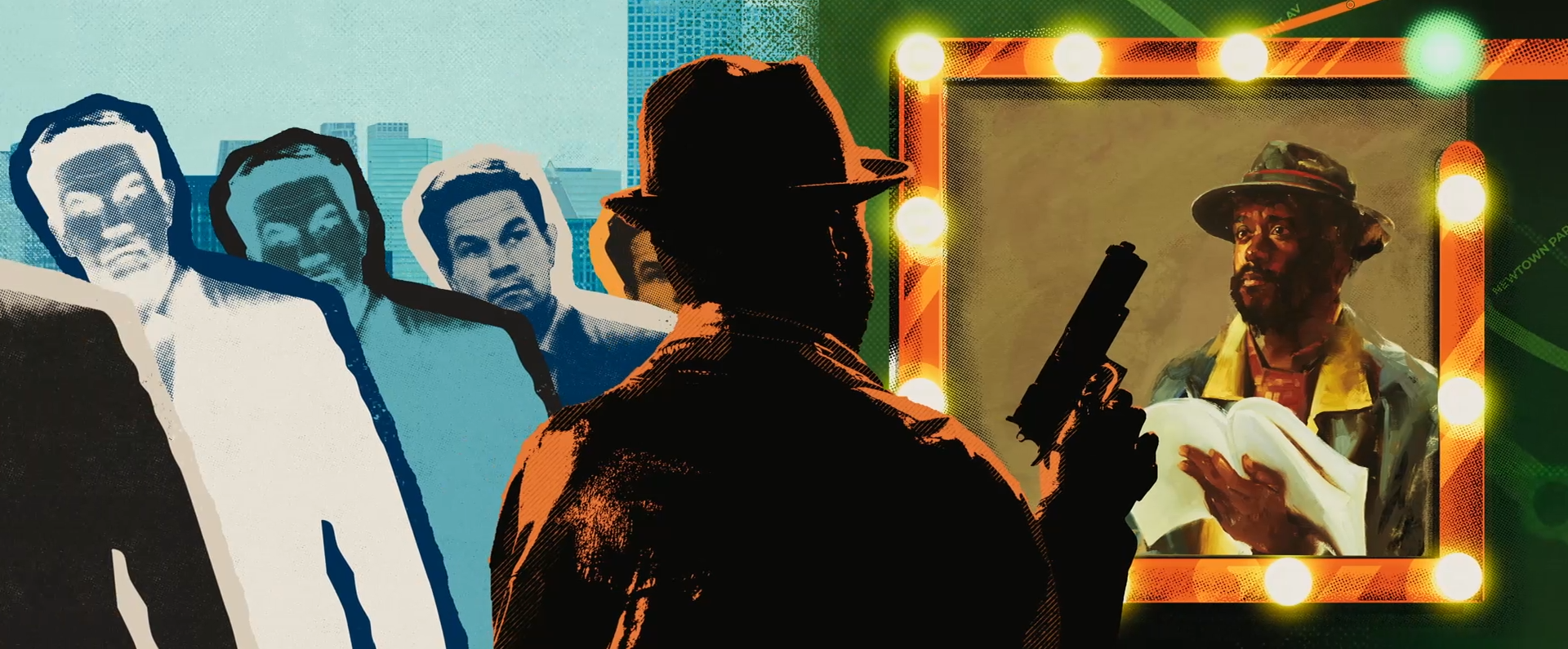
Grofield also is flamboyant, and one of the things that was so great about Westlake is his books felt like a game in a way, a play between the audience and the author. I think this spirit of Westlake, which is just sort of bubbling over with mischief, is what Grofield represents. Certainly, it’s a different tone. It’s interesting because the first three Grofield to some extent have a very different tone, and then the last one – Lemons Never Lie – is closer to a Parker novel. You can go either way, it’s a flexible tone, but at the heart of it is a grit and a toughness, which I hope persists in this movie. I don’t wanna give spoilers, but we don’t compromise Parker’s code.
TB: Absolutely. We loved the movie, and we thought it stayed very true to the character.
SB: We tried it. There will be some people who say, "well, you should've stuck more to the Lee Marvin approach." I think we wanted to try something that was just a little more lively in terms of addressing this sort of cat-and-mouse quality of Westlake's writing.
TB: You kind of answered our next question already, but it would be nice to hear a little bit more of your opinion. What do you think about Grofield and Parker’s dynamic? You mentioned him going out of his way to save Grofield in The Handle and Butcher’s Moon, and you played with that a lot in the movie, their banter back and forth and the ending.
SB: I think Parker and Grofield have a very interesting relationship because Parker’s always seemingly annoyed by Grofield’s sort of more flamboyant attitude. Grofield almost acts like he’s a spectator at the rodeo, he seems like he’s there because he wants to be. Parker is, I think, more of a tactician. What’s important to him is the money and the pride he takes in how he plans the score. He’s like a technician who’s especially good at his job.
Grofield brings an X factor, he has the panache to take a step back and see everything is a great drama. I mean, in the books, he even has his own music that he plays in his head as if he’s participating in a movie or a show. He has background music that makes this all very dramatic, and almost removed from reality. He really is enjoying this the way an actor would. They forge this friendship, and that’s what’s so interesting. Parker would be the last person you would think who wants someone flamboyant and goofy around him, who’s quoting Shakespeare and talking about tilting at windmills. I think that’s part of the Westlake charm, he gave Parker a sort of foil because he knew Parker himself is so hard-edged that he’d need someone to say, “shut up, Grofield.” to. Parker doesn’t tolerate fools, but he tolerates Grofield.
There’s a great part in one of the books where they go pick up a truck for a heist and the guy says, “wow, man, you won’t believe what I had to do. Get this: there’s this institutional orange, man. It was really hard because they paint them this color.” And Parker goes, “what’s all this talk?” “I just wanted you to know how much work it was.” “Why? Did you do it or didn’t you?” That’s his attitude. Why are you talking about it? Why are you explaining things? Did you get the orange we wanted? So, he doesn’t tolerate flights of fancy and Grofield is nothing if not flights of fancy. They’re always gonna be a great blend. I think, in a way, despite Grofield’s eccentricities, Parker knows that he can trust him – there's a loyalty in an almost quixotic sort of way. To be the character that Grofield in real life needs to be, he has to have that dramatic loyalty to Parker, and I think Parker’s aware of that. Or, maybe he thinks Grofield’s really good at his job.
TB: That’s a great way to look at their dynamic, and you get some of that in Dortmunder as well with Dortmunder and Kelp.
SB: Yeah, that’s what appealed to us about this. The reason we involve the crew is because we wanted to stress that as tough and mythically cool as these guys are, they’re just normal people. You know, Kelp is the guy that lives around the corner from you. Dortmunder is just trying to pay the rent for May, the girl he’s living with. Parker and Grofield, they’re a little more psychotic in a way. Parker wants to make money so he can go spend it and then get bored again so he has to steal. We even hint in the movie that Grofield, similarly, maybe he could put on a hit show and succeed but that would stop him from having to go back and steal, which maybe he likes to do. There’s a little bit of a quality that they're just normal people who have this one quirk – this one itch they need to scratch – and I think they like being good at things.
The great thing about the characters in the Parker books is although they may get up in the morning and put their pants on one leg at a time, and run downstairs and argue with their wives and their kids, there’s something that they’re mythically good at. Some bit of skill that persists, that sort of flickers. Even at their worst most suburban moment, that little mythic skill, it’s never extinguished. It’s ready to kindle, it’s ready to come to life. Suddenly, they’re the person that in their heads they’re meant to be. The person that could do that crime, do that score.
TB: Parker’s background is only very briefly hinted at in the books, but a lot can be deduced from context. What made you decide to give him an explicit backstory?
SB: With regards to Parker and his backstory, we tried keeping it mysterious. In fact, in our early memos, we stressed that to the studio. A lot of people expect to figure out the arc of why he is the way he is, to have him resolve some issue, some very dynamic childhood thing. Parker is an interesting character, but he doesn’t have those seismic shifts. He’s not Scrooge in A Christmas Carol who wakes up a different person, and that’s not the movie. The movie is how startlingly steady he is under fire, and the way he thinks on his feet and improvises. Having said that, we looked at the movie and we thought, because it’s not a book, people might have some trouble relating to Parker unless he reveals a little something about himself.
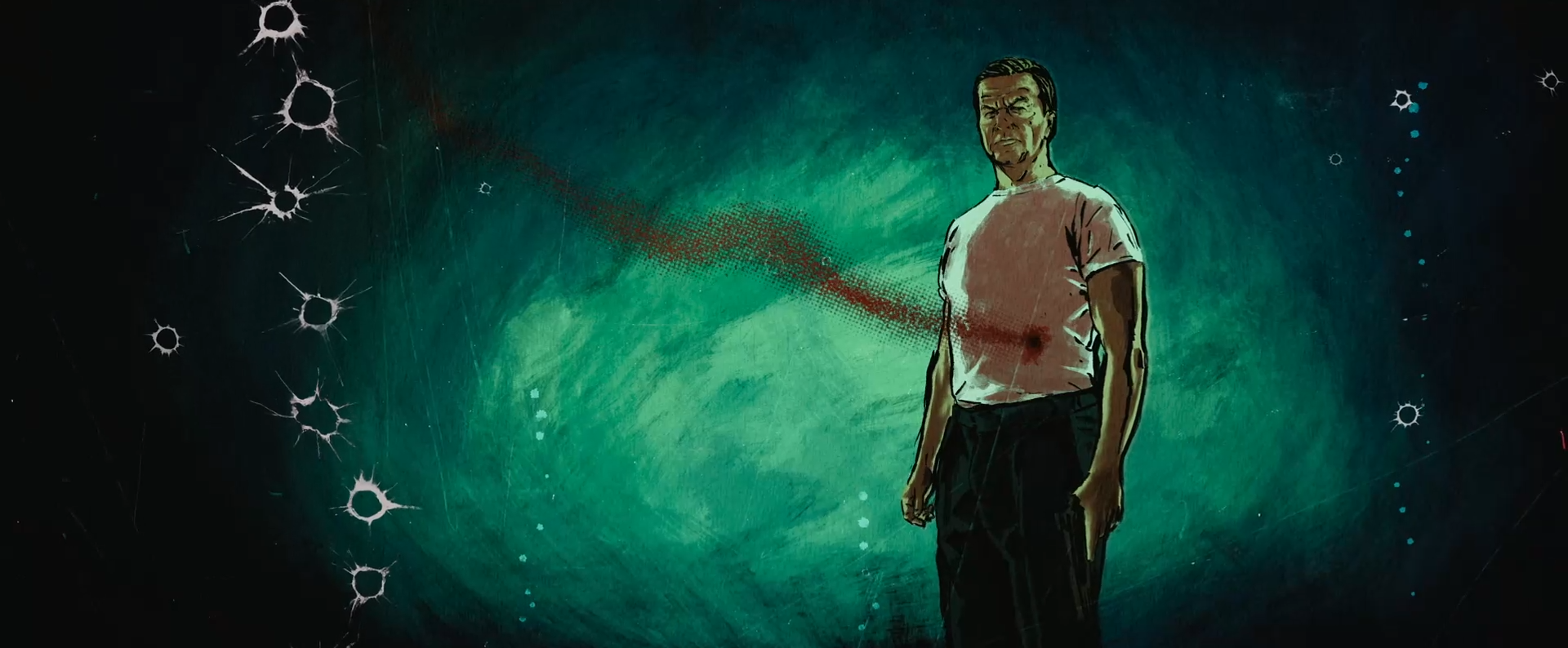
The good news for us was that monologue, the thing which he tells her about his backstory, may in fact not be true at all. In fact, the line we left out – which we only thought of later – after he finishes the story, ideally the character Zen should’ve said, “that’s a great story. How much of it is true?” We always wanna leave room for ambiguity with Parker.
We had a little exercise we would do. Imagine Parker seems to be falling for a girl, maybe even in love, and we realize at one point he’s kind of off-guard and leaves his fingerprints on her pocketbook, which can hurt him later because he’s going to be on a database with those prints. So, then at the end of the story, if we had Parker go back for the woman, we want to ask a question: is it because he genuinely felt something for her, or is it because he just wanted the pocketbook with his prints? As long as you can ask those questions, you’ll always wonder why Parker did what he did.
TB: Thinking about the Parker novels as being products of their time, they definitely have roots in pulp as paperback crime fiction. How did you go about modernizing the character and the world around him?
SB: There are certain stereotypes that Westlake knew how to avoid. People when they think of noir, unfortunately many are trapped in this idea of black and white, the femme fatale, the cigarettes, the tough character, all the cliches which we wanted to avoid. So, right in line with the mission statement that I think is inherent in Westlake’s work, which is these are blue-collar heroes, these are normal people, these are the little guys up against the syndicate. That’s something that never grows old.
We also didn’t want to abandon that legacy of Parker, which owes itself much to those wonderful garish book covers and real pulpy imagery. That’s why we leaned towards a title sequence where we were able to incorporate some imagery that felt more like it was off the cover of one of those old paperback books. We wanted to root in the past, but have it play as a very modern story. It’s not updated that much in the sense that technology didn’t really change in the movie, except that they’re using a kind of a cellphone app at some point. Aside from that, it was important to us that they’d be this sort of working class heroes.
In a world where all heist teams are very athletic these days, like spin kicks and walkovers and whatnot, we wanted to be the ones where it was awkward and crazy and full of stumbles. In a world where people are walking through lasers with green-vision goggles, we wanted to be the ones where the technology was much simpler than that. Part of what Parker is is not updating him. It’s about making it sing for an audience that is contemporary, but also showing them that not everything has to be a techno-thriller. This is about a little man – an American entrepreneur, if you will – who just does things in a very old-fashioned way and people tend to count him out. They go, “he’s a dinosaur, he hasn’t advanced.” But no, he’s just got a set of skills which persist no matter what time it is, no matter what era it is.
TB: You spoke about what people expect from this kind of movie, the femme fatale and all of that, and Zen is the only major player in the film not to have any direct equivalent in the novels. What led to her creation? Was there anything in particular that inspired the character?
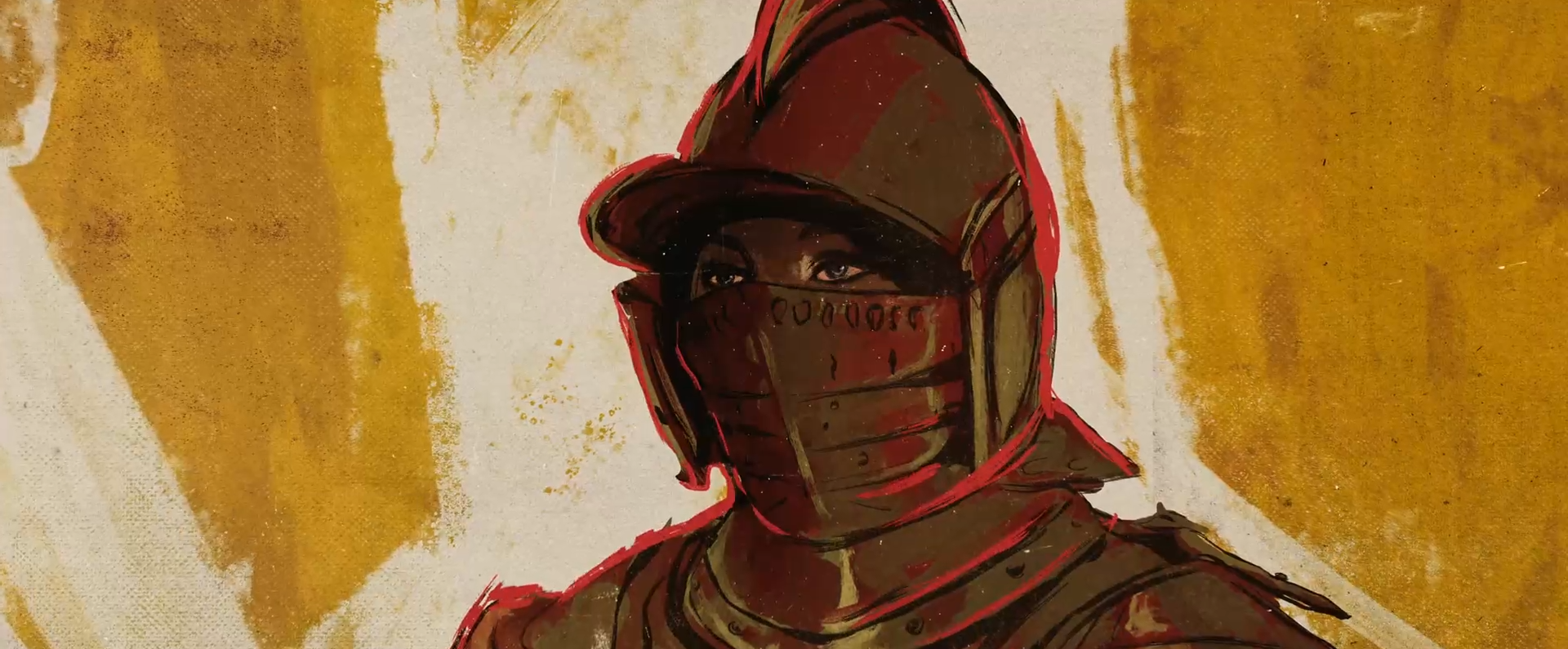
SB: We wanted someone who would match with Parker in terms of them seeing a kindred spirit in each other, someone who had some of the same qualities. Westlake – whether it was The Hot Rock, or whether it was The Black Ice Score – there was always this thing about a foreign dictator. Grofield, same thing. A foreign dictator who has some relic on display that gets stolen. Or, some freedom fighters or group of people that have this cause in their head. It’s all through Westlake’s books. We wanted to pick similarly the sort of freedom fighter who’s looking for an artifact on behalf of a South American colonel because we felt that fit in with the sort of character that Westlake might have written. She’s a great character, I think, in terms of her abilities but there’s also a professionalism about her.
As for the heist, it was based on something that is very real, which is this idea of a shipwreck in territorial waters. There was one just a year or so ago in Peru, which I think they’re still fighting over. All the squabbling over who owns it is actually from the real world. That’s something Westlake would’ve liked, I think.
TB: Zen reminded us a little of the female lead in The Blackbird, the Grofield novel, and that kind of character Westlake had.
SB: Yeah, she’s the only character that might not have featured in a Parker book but she’s very lethal. In the Parker universe – Parker and Grofield – there is an elevated level of violence and the double-crosses tend to be a little more cruel and calculated. I think she fits well in there.
TB: Looking back at your career, do you find that Westlake work has inspired your own?
SB: I think there’s lots of writers who’ve been influential, among them chiefly Ed McBain AKA Evan Hunter, who did the 87th Precinct novels. Those were incredibly influential on me. The Westlake novels, of course. They followed me through life, and they would tap back in at various points. I’d read them when I was a teenager, I’d come back to them in my 30s, and come back to them again. The Ross MacDonald novels, detective Lew Archer – a very powerful driving force behind the stuff I do.
There’s always gonna be someone who took this genre seriously, and saw it not just as a way to present a series of events. There’s gonna be writers who take the genre and wanna say something about society, or about our place in it. I think Westlake was one of those, in the sense that he created a universe of normal people who are also really cool and really good at what they do. There’s a competence to them.
So, all those books are gonna inform my writing style. I think you’ll find those types of quirky-but-cool characters, like for instance Ryan Gosling in The Nice Guys. He’s a complete fuck-up in so many ways, and yet. We talked about this spark – this flicker – of something that is just intuitive and skillful that he can try and drown it by pouring a gallon of alcohol on it, he might hate himself, stay up all night and yet he can’t quite extinguish it. Through all the self-hatred, he can’t put that flicker out. For an instant, if only for an instant, he becomes a real detective and he’s good.
And that’s something that’s seen throughout the stuff I do; the theme of the character who is sort of a blue-collar quirky guy with lots of flaws who is unable to suppress the one thing that makes him almost mythic. A normal guy that has to step into shoes to fill a mythic formula much larger and more ancient than him, he’s being forced to step up and become one of those people that are much larger than life.
TB: That’s wonderful. Thank you so much for chatting with us.
SB: It’s a pleasure. If nothing else, I hope with the combination of the platform on Amazon and your website, it reinvigorates some interest in these novels and gets a new generation to check them out and read them.
Play Dirty, starring Mark Wahlberg and LaKeith Stanfield, is now streaming on Amazon Prime.